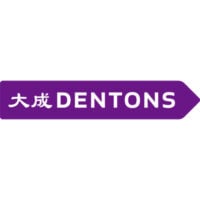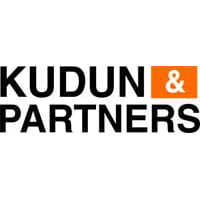
China 2019

General manager - legal (Mainland) | Hang Lung Properties





Yun Zhang
General manager - legal (Mainland) | Hang Lung Properties
How do you suggest in-house lawyers build strong relationships with business partners? An in-house lawyer shall follow the “three S’s principle” in order to build a strong and positive relationship with the business partners. Namely, the three S’s stand for speedy, sufficient and smooth. Speedy refers to the time we need to give feedback to business partners. Any replies, advice and suggestions shall be provided on a timely basis so that the business teams may have enough time to take necessary actions. Sufficient refers to the contents we provide in our feedback. Wherever necessary and applicable, our answers should try to cover all aspects of an issue, including not only the direct answers to the questions raised by our business partners, but also a summary of the general view, industry practice, risk analysis and mitigation suggestions so that the business partners have sufficient information to take into account before they make a final decision. Smooth refers to the way we communicate with the business partners. We shall use simple and clear language to state our opinions instead of using complicated legal terms and quoting long legal clauses. Business people mostly will not focus on what exactly the law says, but how the law will impact the business. Moreover, we shall actively get involved in the business activities so we will know better about the business needs and can provide useful and practical suggestions and advice. By knowing the business, we can also have chances to discover any issues and risks in a timely manner and make suggestions accordingly. What “legal tech” products do you currently utilise, and do you foresee implementing more of these in the near future? Our most frequently used legal tech product is Wolters Kluwer, which provides a database of existing laws, court judgements, and professional analysis from experts in different industries. We also use Tianyancha and other similar products to verify or search for some company information. The current legal tech products mostly serve as basic tools for in-house lawyers to save time in searching for information. In this aspect, the current products we utilise have generally served the purpose. Some legal tech products are also trying to provide online contract templates and legal consulting services, but such products are still at the very initial stage and are not able to meet the requirements of big companies, especially multi-nationals. We believe that with the development of big data, AI, blockchain and other advanced technology, there will be more choices for in-house lawyers to choose legal tech products and there are chances that some work currently done by external lawyers can be later replaced by legal tech products, and we would be willing to try such products once available. Have any new laws, regulations or judicial decisions greatly impacted your company’s business or your legal practice?
The country is now paying more and more attention to the protection of personal data, important data and cybersecurity. The related new laws and regulations are promulgated frequently and many new drafts are still on the way. Being a leading operator of luxury malls, offices and other properties, and having our own online promotion arrangements and membership programme, data and cybersecurity related legal updates have greatly impacted our business. In order to keep ourselves in compliance with existing laws and catch the trend of legal updates, we are having interdepartmental data management meetings regularly; we engage external counsel to review our current practice and adjust our business where necessary; we talk to industry experts to hear from them views from other angles; we revise existing internal policies and draft new ones to reflect the legal changes; and we arrange internal trainings in all our projects so that everyone in the Group is aware of the importance of and main points under the relevant data and cybersecurity laws. When selecting a law firm, what criteria do you evaluate the potential firms by? I believe every in-house counsel when asked,
will choose a comprehensive first-tier law firm
with experienced lawyers. The criteria for such a pick will usually involve expertise, experience, cost, turnover time and resources in locality. This is a reasonable and prudent answer when we set our aim to protect the interest of a company which may have need for legal support in different sections. What I would like to emphasise here is that from all those first-tier law firms, I will choose the one that has a dedicated team led by a strong partner with extraordinary coordination capability and interpersonal communication skills. This leading partner will play a very important role in the team. He is expected to recommend and arrange the appropriate lawyers with expertise in different professional fields and locations to serve us based on our needs and requests, act as a coordinator to solve any internal conflict of interests and provide replacement while there is any problem with the team and generally supervise the service quality to ensure the work delivered meet our standard and requirements. In what ways do you see the in-house legal role evolving in your region over the next few years? In the past, in-house lawyers were considered more as a back-office team supporting the business functions and the major job of a legal team is to draft, review and revise contracts and to handle legal disputes. In-house lawyers are now playing a more important role in a company. Other than passively solving the problems raised by business partners, in-house lawyers also take an active role in decision making and recommending risk mitigation methods to avoid potential issues and risks. In some companies, the legal head of in-house lawyers has also become a member of the top management team and may even have a one-vote veto power to any new project. It is not to say that every company shall follow exactly the same practice, but it shows the trend that in-house lawyers will have more power in the operation and management of a company. In the future human society, there will not be a lack of technologies, development and opportunities, what will lack are rules and how we value and follow the rules. In-house lawyers will take the role to keep a company always within the line of the rules during its development, which will then lead the company to healthy and sustainable development.